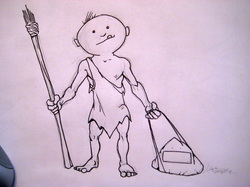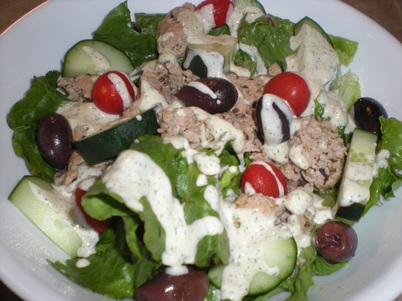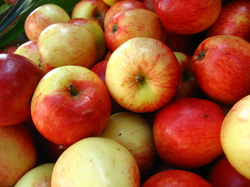
So why is this diet so popular? For one, many health practitioners have found this diet and slight variations of this diet very helpful for resolving chronic health conditions such as diabetes, autoimmune issues and of course, obesity. The diet has also gotten popular at Crossfit gyms, which has help it spread. I was told once that because many men work-out at crossfit gyms (of course women do too), the diet has enjoyed more popularity that many other diets, since traditionally mostly women are more likely to adopt different diets for weight loss. It is also a diet that can appeal to many well-educated people, because it is a whole foods diet based on mostly sound nutritional components. However, like all diets it comes under fire often from people holding different dietary beliefs.
So what can you eat ON the paleo diet? The basics are that you are to eat like our hunter and gatherer ancestors: meat (preferably wild and/or organic and free-range), nuts and seeds, fruits, eggs and lots of veggies. Grains, beans, corn, dairy, sugar, bread and all processed foods don't make the paleo cut.
So, is this diet a "good" and healthy diet? There are a lot of reasons I like the paleo diet, and some reasons I think twice about it.
Reasons to like paleo:
- The paleo diet is a whole foods/real foods diet, meaning it isn't processed.
- It paleo diet is lower in simple carbohydrates than the standard American diet, thus much better on blood sugar, and also a diet that promotes weight loss.
- The paleo diet removes common allergens like gluten, wheat, soy, and milk/cheese/dairy, making many people feel a lot better eating "paleo." These foods in Chinese medicine are said to promote "dampness" in the body, which can create symptoms such and indigestion, headaches and obesity.
- The diet is much higher in vegetables than a standard diet.
Reasons to think twice about paleo:
- Sometimes paleo dieters can swing a little out of balance. For so long we were told by the "nutrition authorities" that fat and meat was bad for us, bad for our hearts and bad for our waistlines. Luckily, research is starting to catch up with the simple fact that fat isn't bad (at least the right kinds of fat). However, some people who adopt a paleo diet swing perhaps too far in the opposite direction, maybe eating too much meat and fat than their bodies can handle. I believe nutrition is about balance, and that we should strive for that.
- While eggs and meats can be healthy, quality matters. Eating organic, pastured and grass-fed is important for your health, and while most paleo dieters know this, it can be hard to practice because of monetary and convenience issues.
- There are other healthy diets out there. I like what are called "ancestral diets" or "traditional diets," of which the paleo diet falls under. Ancestral diets seek to emulate how our ancestors ate before food was industrially processed. There are many good ancestral-style diets to check out: a Mediterranean style diet (allows beans and grains), a Weston A. Price style diet (allows beans, grains and dairy, the emphasis is on preparing them as our ancestors did), a Primal style diet (like a paleo diet, but with dairy and more saturated fat), and the Perfect Health Diet (allows more carbohydrates than the paleo diet, as long as they are certain types of carbohydrates) are some. Since the paleo diet can be rather restrictive, if you don't need to be on the diet for a certain reason, you might be able to find another style of healthy diet for you.
- There is a lot of controversy about eating meat and environmental sustainability. The common paradigm is that eating meat is bad for the planet, but there are others that challenge this notion. So, this is something to consider when choosing ANY diet.
I always say that you are the best judge of what type of diet you should eat. However, choosing a proper diet for you does take body awareness, some education on the basics of good nutrition and of course the patience to experiment and revise when necessary. I believe "paleo" can be healthy for many people, but it may not be a long-term diet solution for everyone.



 RSS Feed
RSS Feed